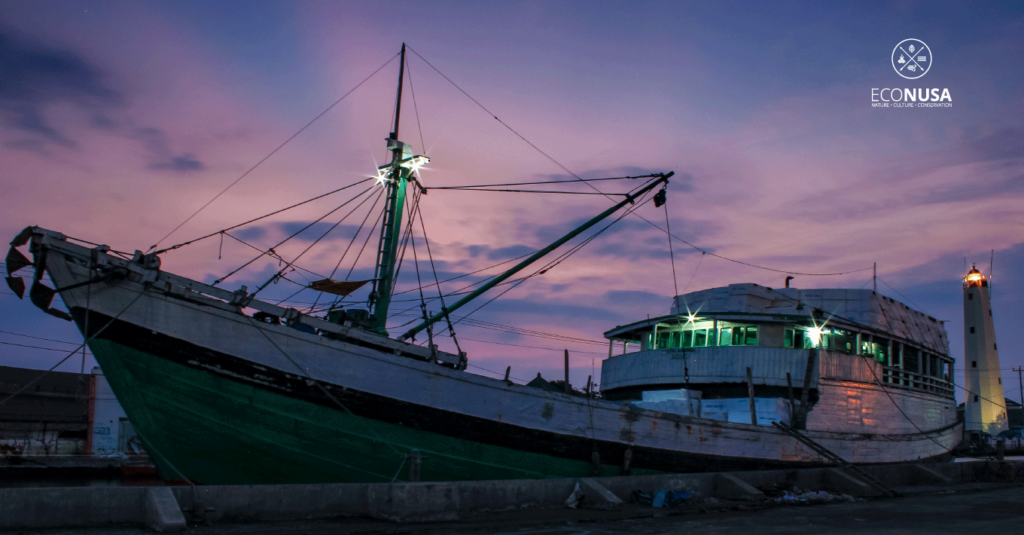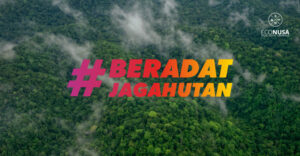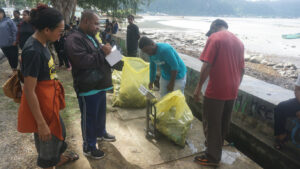
Government plans to accelerate export from maritime and fisheries sector. On a press release from the Coordinating Ministry for Maritime and Investment on July 13, 2021, Minister Luhut B. Pandjaitan urged export from the Fisheries Management Area of the Republic of Indonesia (WPPNRI or WPP) 717 and 718 located in Biak Numfor Regency, Papua Province and Tual City in Maluku Province. As to Luhut, all supporting details for the export will be ready in a month ahead.
On the press release, it is mentioned that fisheries catches from WPP 717 and 718 are far from the targeted non-tax state revenue (PNBP) with only Rp 1 trillion in 2021 and Rp 12 trillion in 2024. To meet the target, it requires additional 2000 units of fishing boats with more than 150 gross tonnage (GT) in size.
According to the NGO coalition for fisheries and maritime sustainability (KORAL), most of categories of fisheries resources on the WPP 717 and 718 are currently under pressures due to overfishing practices. In WPP 717, as from nine fisheries resource categories, four of them is on over exploited condition and three is deemed fully exploited. There are only two moderate categories, namely demersal fish and penaeid shrimp. Meanwhile, in WPP718, as from nine categories, two of them, coral fish and squids, have been over exploited. The others are fully exploited. Considering the fact, the additional 2000 fishing boat units plan needs reviewing.
Read Also: Data Journalism Echoing Indonesian Ocean and Fisheries Pressures
The discourse of extra boat here will spark social conflict against small fishers dealing with the catching areas. Let alone, there are many boats particularly in WPP 718 whose catching areas are under 12 nautical-miles radius. In fact, the permit for those boats are on the Indonesia Exclusive Economic Zone.
Based on the Article 6 of the Law No. 31/2004 on Fisheries, fisheries management is intended to create optimum and sustainable fisheries management so as to ensure the sustainability of fisheries resources. For the reason, accountable fisheries management principle should maintain the availability of fisheries resources for the current and future generations by preventing it from overfishing.
As to KORAL, there are three points to ponder by the government to ensure that WPP 717 and 718 is managed in sustainable manner. Firstly, the plan should be made upon considering the study conducted by the National Commission for Fish Resources Assessment (Komnas Kajiskan) on the national fish stock, particularly in WPP 717 and 718. There has no assessment of fish stock thus far from those areas.
Secondly, the government should have prioritized domestic fisheries business including fishing boat and fishing boat industry as well as other relevant domestic industry. Thus, the government currently needs to ensure for not giving any chance to the former foreign fishing boat to operate in all WPPs, including WPP 717 and 718. Let alone, WPP 718 has weak oversight due to the lacking of personnel and facilities. The number of fishing boats operating in this area has been more than 4000 units spreading out in all points of WPP 718.
Read Also: Young People Safeguarding Maluku Sea
Thirdly, the government should ensure that each policy, budget allocation and spending of WPP 717 and 718 plans are done in transparent manner. As to KORAL, the procurement of 2000 units of fishing boats with more than 150 GTs in size is improper and should be rebuffed noting the fact that it will increase catches that threaten fish resources on that WPPs. If the vessel procurement involves foreign investment, then the decision will be considered breaching the principle of fisheries management sustainability and against the domestic fisheries business and small fishers.
KORAL is the coalition consisting of nine civil society organizations that have concerns with Indonesian maritime and fisheries. They are Wahana Lingkungan Hidup Indonesia (WALHI), Koalisi Rakyat untuk Keadilan Perikanan (KIARA), Yayasan Ekosistem Nusantara Berkelanjutan (EcoNusa), Pandu Laut Nusantara, Indonesia Ocean Justice Initiative (IOJI), Greenpeace, Destructive Fishing Watch (DFW), Terumbu Karang Indonesia (TERANGI), and Indonesia Center for Environmental Law (ICEL).
Editor: Leo Wahyudi




